Are you considering accepting a special audit engagement but unsure how to communicate your decision? Writing a clear and professional letter is essential to set the right tone and expectations. In this article, we'll guide you through the key elements to include in your acceptance letter, ensuring your message is both effective and welcoming. Keep reading to discover helpful tips and a sample template that will make your audit engagement process smoother!

Scope of Audit
Special audit engagements require a clearly defined scope to ensure thorough examination and effective evaluation. The scope of the audit may include financial statements review, compliance with relevant standards such as International Financial Reporting Standards (IFRS), transaction verification, and control assessments within organizations. Specific focus areas can involve operational efficiency analysis, risk management evaluation, and fraud detection mechanisms. Additionally, timelines for each audit phase should be outlined, ensuring timely reporting on findings. A detailed outline of the methodologies and audit tools to be employed, such as analytical procedures and substantive testing, can enhance clarity. Stakeholder communication, including reporting channels and feedback loops, plays a critical role in finalizing the audit project scope.
Objectives and Deliverables
The special audit engagement aims to assess the financial integrity and adherence to regulations within the organization, specifically focusing on compliance with the International Financial Reporting Standards (IFRS). Key deliverables include a comprehensive report detailing findings, recommendations for process improvements, and an executive summary highlighting areas of risk and concern. The auditing period is set for the fiscal year 2022, involving a thorough analysis of financial statements, internal controls, and transaction processes. Professional judgment will guide the evaluation of identified discrepancies, ensuring transparency and accountability within the financial practices of the organization.
Client Responsibilities
In special audit engagements, client responsibilities include providing access to all relevant financial records and supporting documents, such as invoices, bank statements, and contracts. Clients must ensure the accuracy of the information provided, which directly impacts the audit's effectiveness. Furthermore, clients should facilitate communication between their staff and the audit team, establishing a point of contact for any queries or additional information needed. Timely responses to audit inquiries are crucial in adhering to the agreed-upon timeline. Additionally, clients are expected to implement internal controls to safeguard sensitive information, ensuring compliance with legal and regulatory requirements throughout the audit process.
Auditor's Obligations
A special audit engagement acceptance requires detailed attention to the auditor's obligations, including independence, objectivity, confidentiality, and professional skepticism. When accepting such an engagement, auditors must be aware of relevant auditing standards, such as the International Standards on Auditing (ISA), which mandate a comprehensive understanding of the client's business environment and risk assessments. The auditor's obligation also includes communicating with those charged with governance, which may be the board of directors or audit committee, detailing the scope, objectives, and approach of the audit. Furthermore, maintaining compliance with local regulations and ethical codes, such as the American Institute of CPAs (AICPA) Code of Professional Conduct, emphasizes the importance of integrity and accountability throughout the audit process. Each of these obligations plays a critical role in ensuring the reliability of the audit findings and safeguarding stakeholders' trust in reported financial information.
Engagement Terms and Conditions
The acceptance of a special audit engagement involves clear definition of the engagement terms and conditions, including scope, objectives, and responsibilities. Detailed documentation is necessary to outline key milestones, such as the completion date (April 30, 2024) and deliverables, such as the final audit report. The audit team must acknowledge compliance with auditing standards, including International Standards on Auditing (ISA), ensuring adherence to ethical guidelines, like independence and objectivity. Confidentiality agreements must be established to protect sensitive business information. Additionally, fee structures must be clarified, highlighting hourly rates and estimated total costs (for instance, $15,000), as well as provisions for additional costs or unforeseen circumstances. The agreement must also specify the client's responsibilities, including providing access to financial records and necessary data, to facilitate a smooth audit process.
Letter Template For Special Audit Engagement Acceptance Samples
Letter template of special audit engagement acceptance for financial statements.
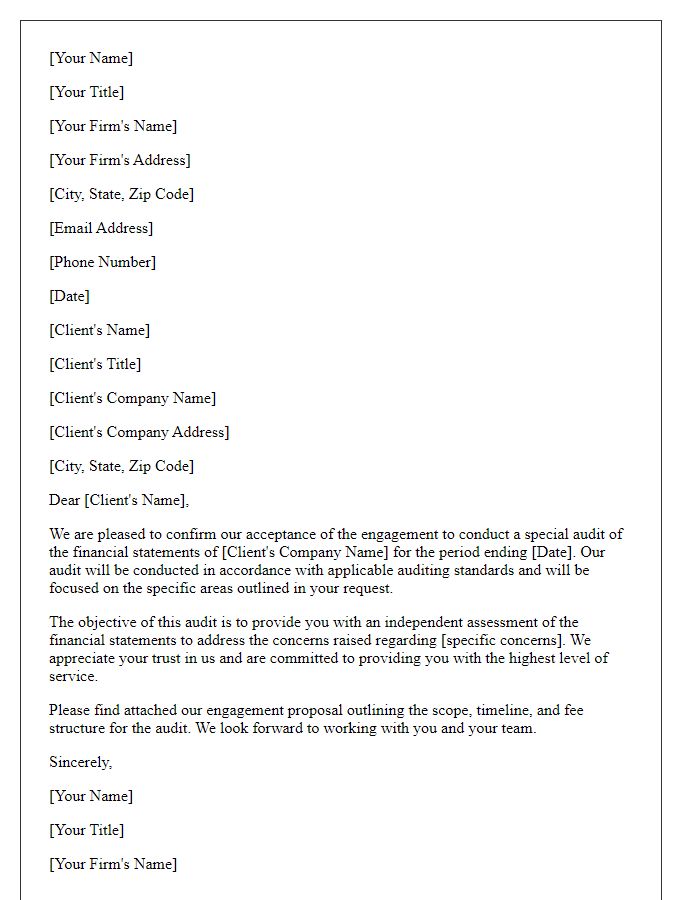
Letter template of special audit engagement acceptance for compliance review.
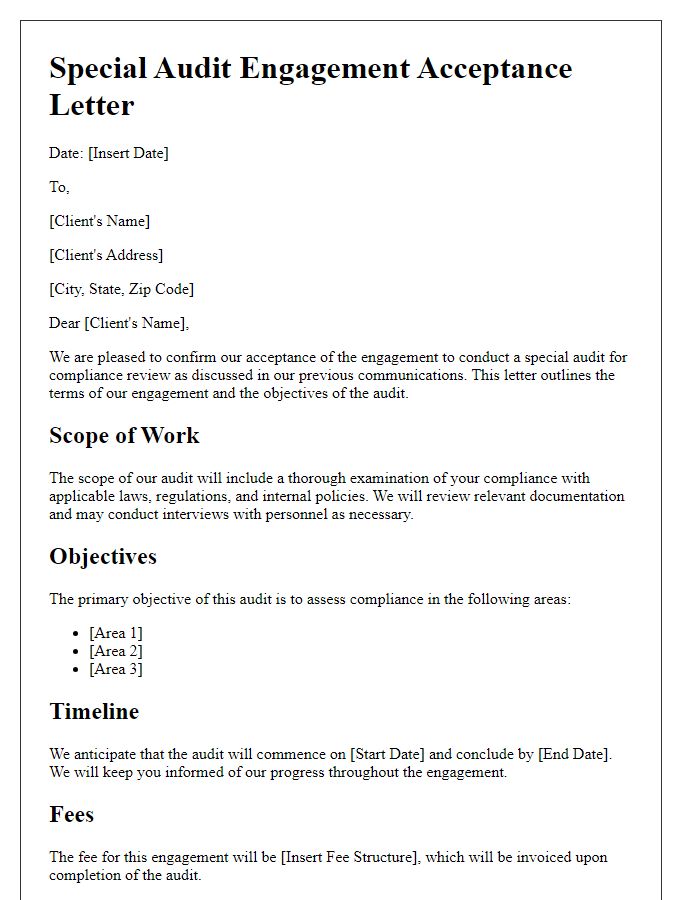
Letter template of special audit engagement acceptance for forensic audit.
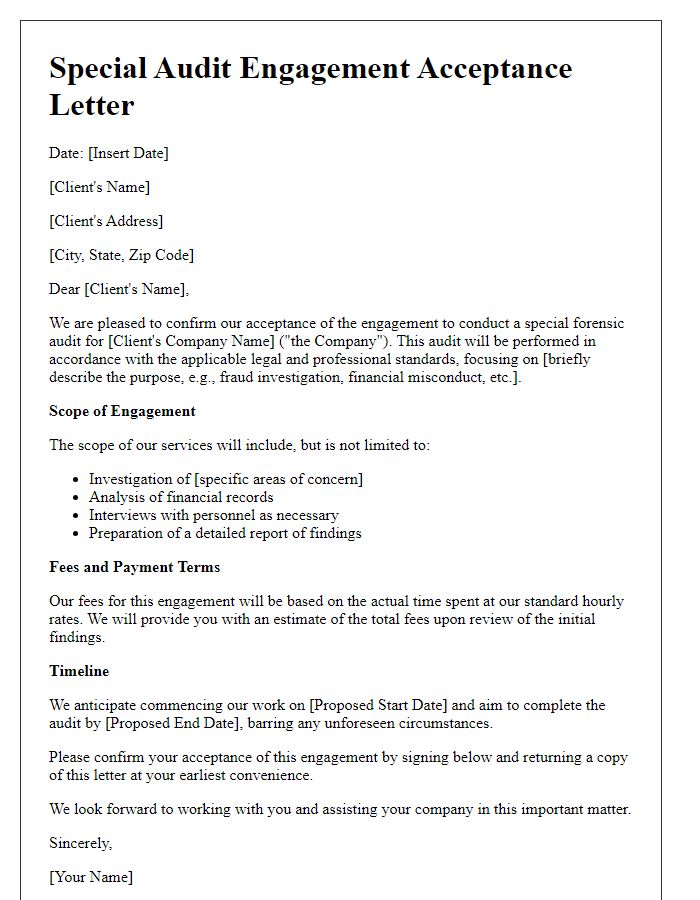
Letter template of special audit engagement acceptance for operational audit.
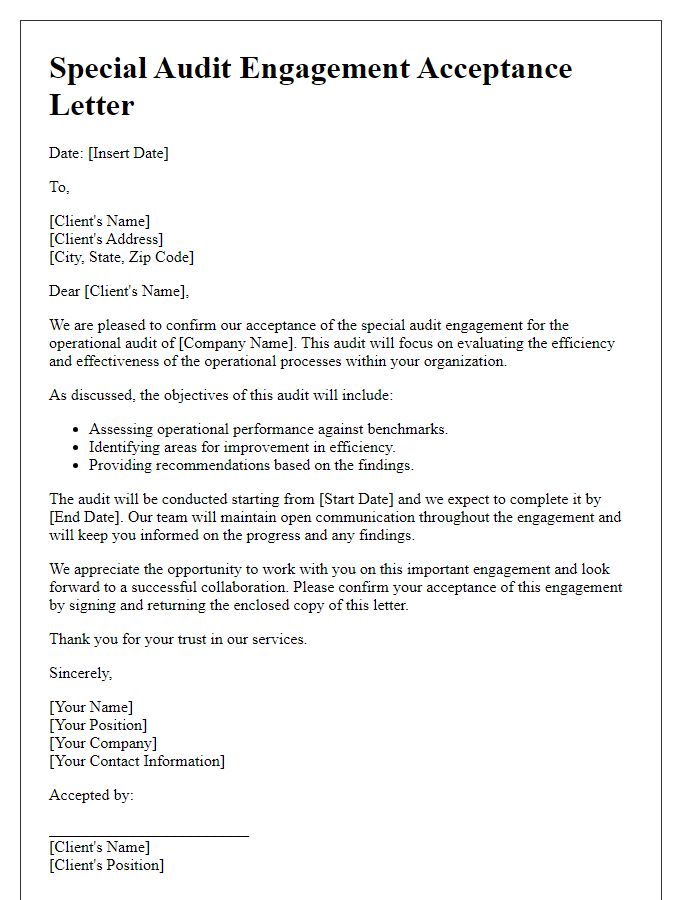
Letter template of special audit engagement acceptance for internal controls assessment.
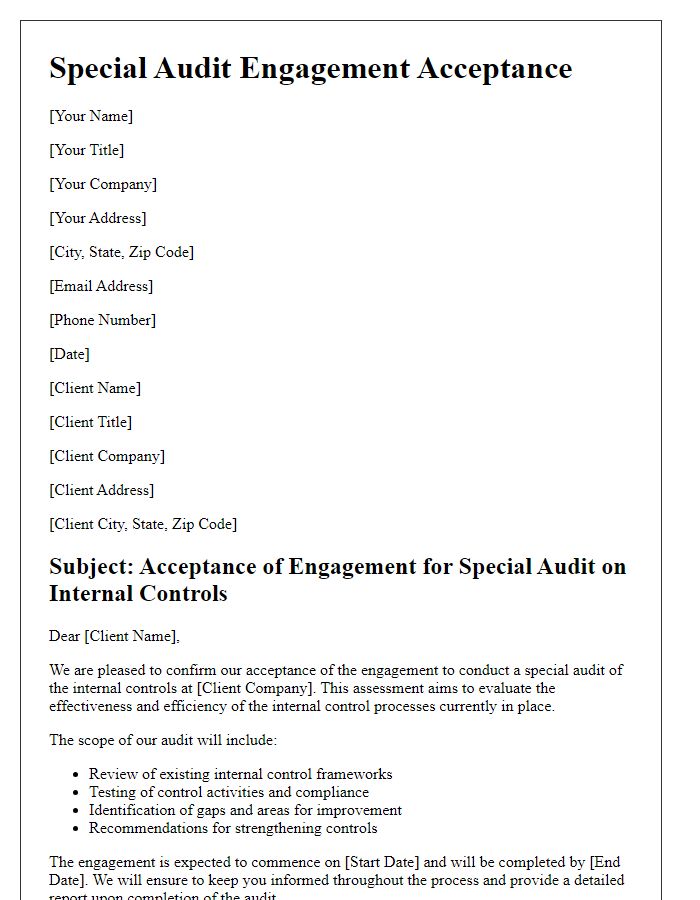
Letter template of special audit engagement acceptance for risk management evaluation.
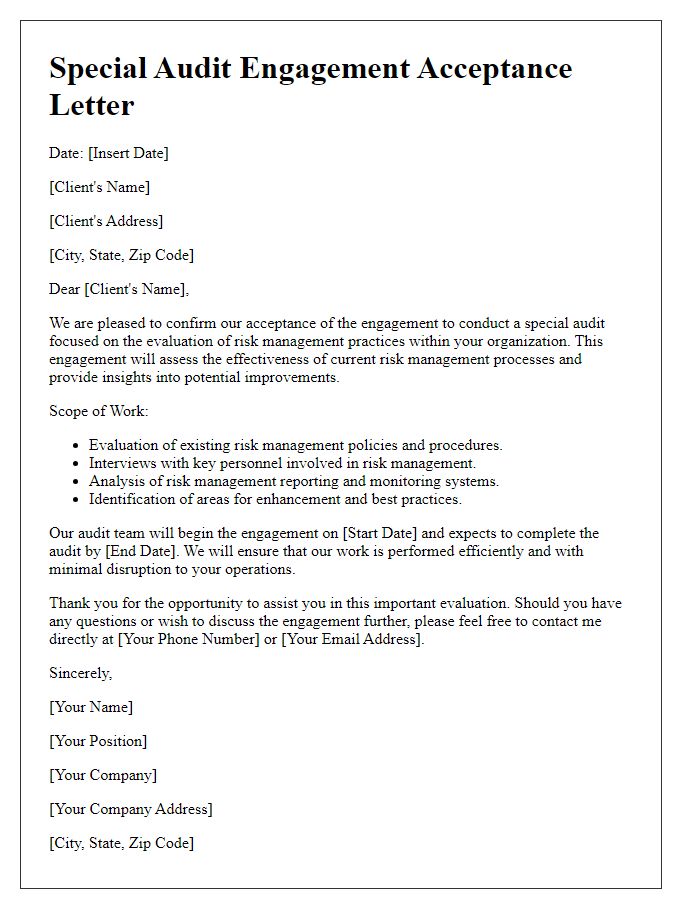
Letter template of special audit engagement acceptance for regulatory compliance.
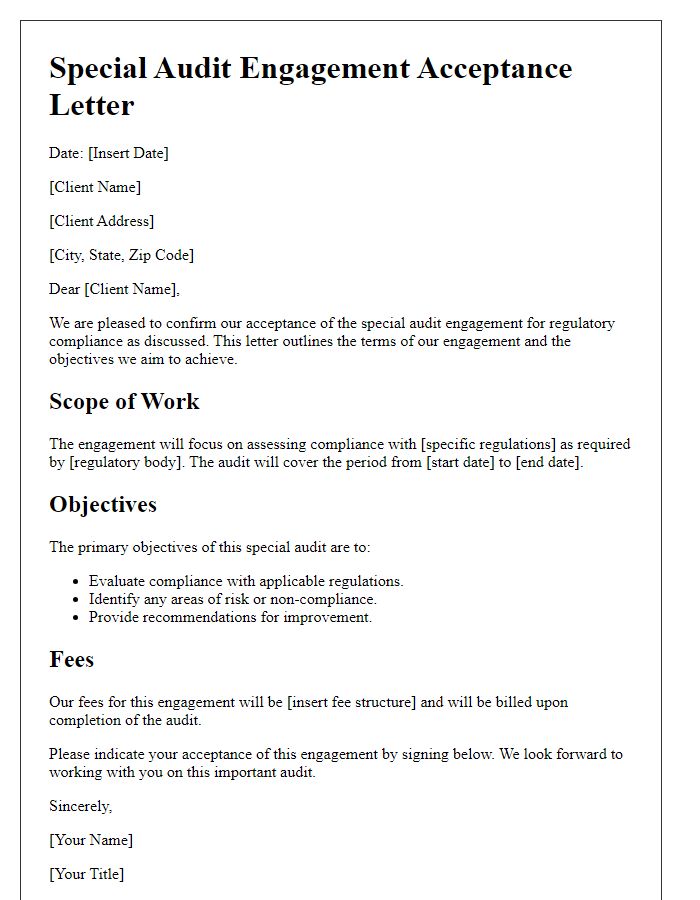
Letter template of special audit engagement acceptance for due diligence review.
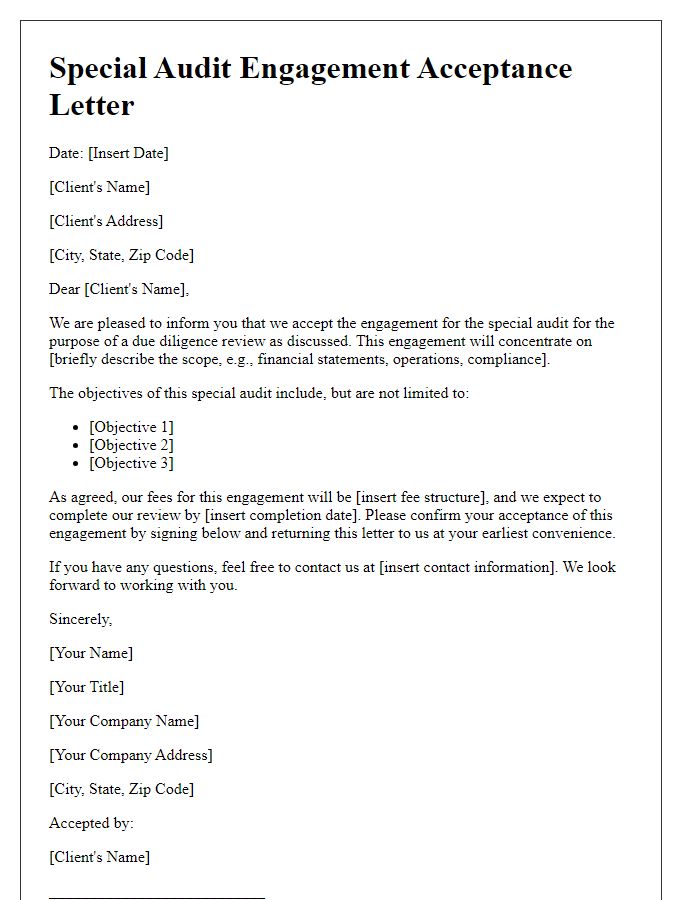
Letter template of special audit engagement acceptance for investigation of discrepancies.
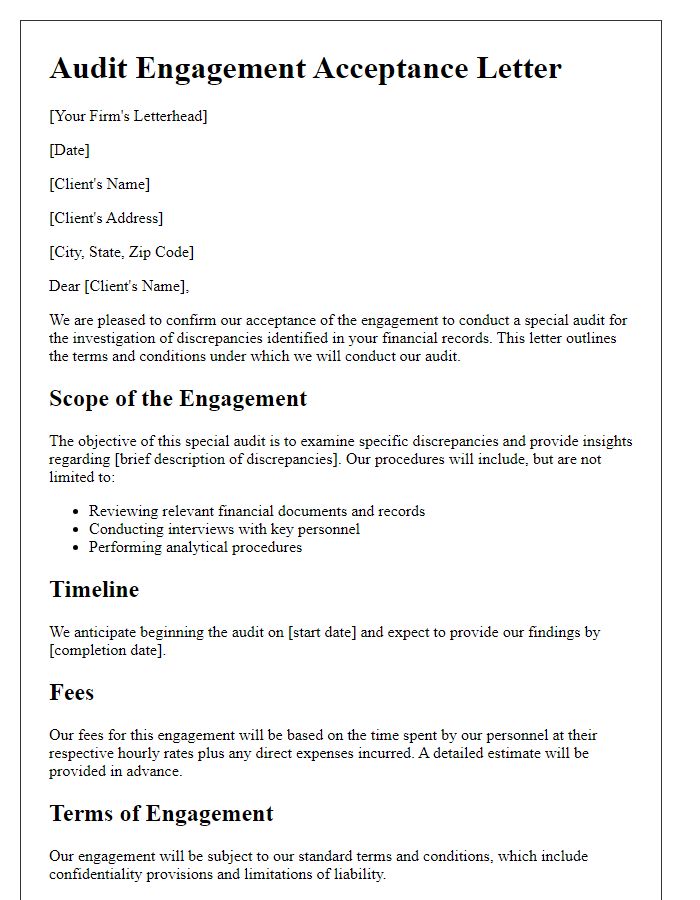

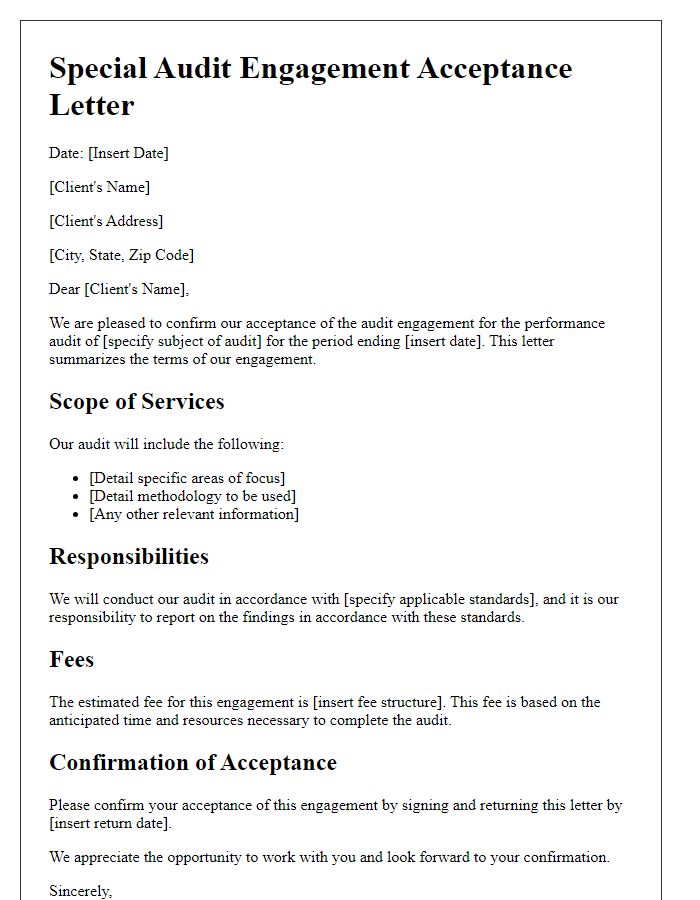


Comments